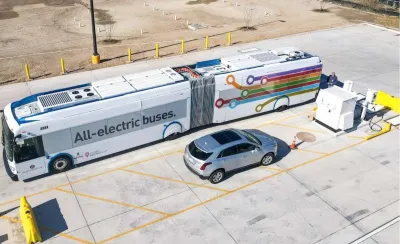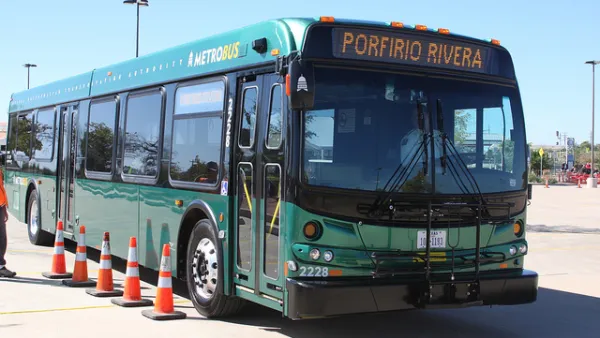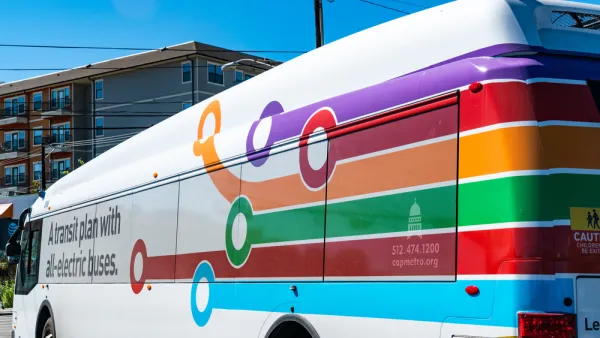Technology problems, short ranges, and supply chain issues hinder Cap Metro’s ambitious electrification plan.

Austin’s Capital Metro is pausing its ambitious plan to shift to an all-electric transit fleet, reports Nathan Bernier for KUT News.
Although voters approved funding for an all-electric transit system through the 202 Project Connect, Cap Metro officials are citing issues with the technology, including a significantly shorter range, as the cause the reversal. “Data obtained by KUT through the Texas Public Information Act revealed CapMetro's battery-electric buses are far less reliable than their diesel counterparts. E-buses had mechanical failures on average every 1,623 miles over the last year — less than half the typical distance between failures for the fleet as a whole.”
The two companies contracted by Cap Metro to deliver the electric buses also faced financial troubles and supply chain issues, with one going out of business. Currently, Cap Metro operates 23 electric buses out of a fleet of 402, with 87 buses on order. “Capital Metro now argues that having a reliable transit service, even with diesel buses, is better for the city and the environment than less reliable public transit with an all-electric fleet.”
FULL STORY: CapMetro stops shift to all-electric bus fleet

National Parks Layoffs Will Cause Communities to Lose Billions
Thousands of essential park workers were laid off this week, just before the busy spring break season.

Retro-silient?: America’s First “Eco-burb,” The Woodlands Turns 50
A master-planned community north of Houston offers lessons on green infrastructure and resilient design, but falls short of its founder’s lofty affordability and walkability goals.

Delivering for America Plan Will Downgrade Mail Service in at Least 49.5 Percent of Zip Codes
Republican and Democrat lawmakers criticize the plan for its disproportionate negative impact on rural communities.

Test News Post 1
This is a summary

Test News Headline 46
Test for the image on the front page.

Balancing Bombs and Butterflies: How the National Guard Protects a Rare Species
The National Guard at Fort Indiantown Gap uses GIS technology and land management strategies to balance military training with conservation efforts, ensuring the survival of the rare eastern regal fritillary butterfly.
Urban Design for Planners 1: Software Tools
This six-course series explores essential urban design concepts using open source software and equips planners with the tools they need to participate fully in the urban design process.
Planning for Universal Design
Learn the tools for implementing Universal Design in planning regulations.
EMC Planning Group, Inc.
Planetizen
Planetizen
Mpact (formerly Rail~Volution)
Great Falls Development Authority, Inc.
HUDs Office of Policy Development and Research
NYU Wagner Graduate School of Public Service




























